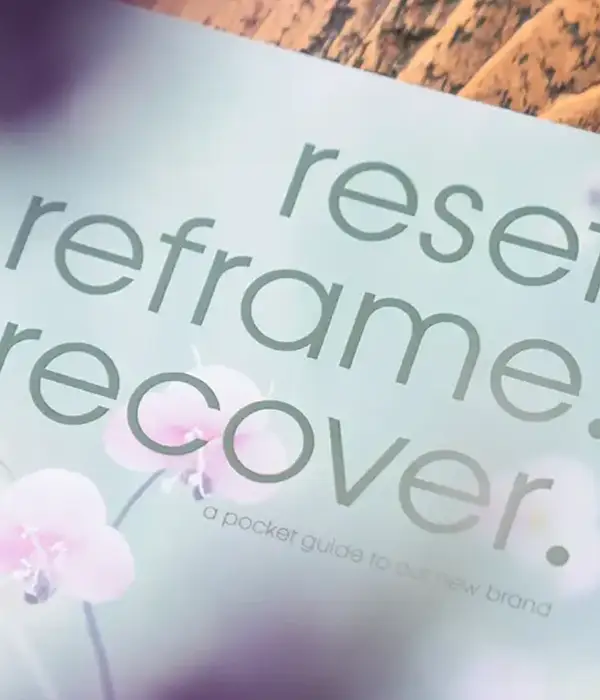Sertraline Addiction Treatment
Many people who take sertraline wonder what happens if they try to stop or if they begin to feel too reliant on the medication. While sertraline isn’t considered addictive in the same way as alcohol or opioids, suddenly stopping can cause uncomfortable withdrawal symptoms and leave you feeling unwell.
That’s why understanding your options for prescription drug addiction recovery is so important. If you or someone you care about is struggling with side effects, dependence, or difficulty tapering off sertraline, the right treatment can make all the difference.

Take the First Step Towards Recovery
Steps Together offers personalised support and proven treatments, providing the care, guidance and encouragement you need to move forward with confidence and build a healthier future.

Understanding Sertraline
Sertraline is a commonly prescribed antidepressant. Zoloft is its most well-known brand name. Both are central to the treatment of several mental health conditions, making them very familiar to patients and doctors.
Sertraline is a selective serotonin reuptake inhibitor (SSRI) that works by increasing the levels of serotonin in the brain. SSRIs like sertraline are known for having fewer side effects than older antidepressants called tricyclic antidepressants. This is one reason why sertraline and other SSRIs have become popular choices for doctors.
What Is Sertraline Addiction?
Sertraline addiction refers to the compulsive or problematic use of sertraline. While true addiction to sertraline is rare, some individuals may misuse the medication or become psychologically dependent, especially if they take the drug outside of prescription guidelines.
This can include self-medicating, taking higher doses, or relying on the drug for emotional relief. Professional support may be needed to address underlying mental health concerns and ensure safe, guided use or discontinuation.


Common Uses and Mental Health Conditions
Doctors prescribe sertraline to treat several mental health disorders like depression and anxiety. This includes social anxiety disorder and panic disorder. Some people with post-traumatic stress disorder (PTSD) find that sertraline helps control their symptoms.
Obsessive-compulsive disorder (OCD) is another common condition treated with sertraline. It can also be used for premenstrual dysphoric disorder (PMDD), which causes severe mood problems before your period. These uses make sertraline and Zoloft a key part of many treatment plans for mental health issues.
Comprehensive Sertraline Treatment Approaches
If you or someone you care about is taking Zoloft and finding it hard to stop, there are several proven methods to help with substance abuse recovery. Many people need a blend of professional support, therapy, and structured care to manage withdrawal and prevent relapse. Zoloft addiction treatment may include:
Therapy and Counselling
Working with a licensed therapist gives you a safe place to talk about your medication use and related concerns. You can explore the reasons behind dependency and learn healthier coping skills. Therapists may suggest one-to-one sessions, family therapy, or group support to help you stop misusing antidepressants like Zoloft.
Because sertraline is used to treat depression, OCD, panic attacks, and other disorders, it’s important to address these disorders while also addressing the sertraline use itself, as this can help stabilise a patient mentally and prevent a relapse.
Inpatient Rehab
Inpatient rehab means staying at a facility where you get around-the-clock care. This level of support is best if you have a severe addiction, complicated withdrawal, or need a break from stressful environments.
Facilities offer a mix of medical supervision, individual therapy, group sessions, and detox support. Staff guide you through withdrawal and address physical and mental health needs. Being in a structured setting reduces exposure to triggers and enables you to focus on healing, and can help manage withdrawal effects when you suddenly stop taking sertraline.
Behavioural Therapies
Behavioural therapies are widely used in sertraline addiction treatment. Cognitive-behavioural therapy (CBT) is effective. CBT helps you understand how your thoughts, feelings, and actions are connected. You learn to spot risky situations and replace negative thinking with healthier perspectives to help you stop taking Zoloft.
Techniques may include keeping thought diaries, practising new responses, or challenging old beliefs. Behavioural therapies can also teach you relapse prevention strategies and provide tools to handle stress. These skills support long-term recovery and help you reclaim life after using Zoloft.
Outpatient Care
Outpatient sertraline addiction treatment lets you get treatment while living at home. This option can include regular visits to clinics, therapy, and group programmes. You still meet with addiction specialists or mental health professionals who check your progress and give support.
This type of care is good if your addiction is less severe or you need to keep working or caring for your family. Outpatient rehab combines scheduled therapy sessions, medication monitoring, and group support while giving you freedom to manage daily life.
Other prescription drug addictions we treat

Zoloft Withdrawal and Discontinuation
When you stop taking sertraline, you may begin experiencing withdrawal symptoms within a few days after your last dose. Common symptoms include dizziness, nausea, insomnia, fatigue, tremors, and strange skin sensations. Some people may also feel irritable or anxious.
Symptoms are usually strongest in the first week. For most, they last one to two weeks, but they can last longer in a few cases, especially if you stop suddenly. Fatigue and sleep disturbances sometimes linger after the other symptoms have gone away.
Managing Withdrawal Safely
Antidepressant discontinuation syndrome is the medical term for the group of symptoms that can happen when you stop medicines like sertraline. These symptoms include dizziness, nausea or vomiting, headaches, trouble sleeping, feeling tired or weak, tremors, and anxiety or mood changes.
Managing withdrawal safely means working closely with your doctor. During withdrawal, track your symptoms and let your doctor know if they are making it hard for you to function. In some cases, your doctor might pause the taper or temporarily raise your dose before lowering it again.

Signs and Symptoms of Sertraline Misuse
Behavioural signs of Zoloft use often appear before physical changes. You may find yourself taking larger doses of sertraline than prescribed or using it more often. Some people try to get extra medication from different doctors, also known as ‘doctor shopping.’
Physical and mental symptoms are common with sertraline misuse. You may feel dizzy, get headaches, or have stomach problems like nausea and diarrhoea. Some people notice changes in their appetite or have trouble sleeping.
Sertraline misuse can start to affect your daily life. You might have trouble keeping up with school, work, or family duties. Poor concentration and tiredness make it hard to finish tasks or remember important information.
Addiction Potential and Dependence
Many people worry about its risks for addiction and dependence, especially when compared to narcotics or opioids, when using this medication. It’s not as addictive, but using it can still lead to Zoloft abuse.
Is Zoloft Addictive?
Sertraline does not create a ‘high’ or strong cravings like narcotics or opioids. Because of this, it is not classified as an addictive substance in the same way as those drugs are.
You will not develop uncontrollable urges to take more sertraline or seek out the drug despite harm, as can happen with substances like heroin or prescription painkillers. However, some people report withdrawal symptoms if they stop sertraline too quickly, such as dizziness, mood swings, or flu-like symptoms.
Risk Factors
You are unlikely to misuse sertraline the way you might with certain addictive drugs. Still, some factors may increase your risk of problems. Following your doctor’s advice, using a set schedule, and not sharing your medication helps prevent misuse and dependency.
People with mental health issues may have a higher risk for misuse, especially if they struggle with addiction to other medications or drugs. Using sertraline with certain narcotics or alcohol can also raise safety risks.
Dependence versus Addiction
Dependence means your body has become used to the medication. This can happen even if you take your prescribed dosage. If you stop suddenly, you may feel unwell, but you are not addicted in the sense of compulsively seeking the drug.
Addiction involves using a drug despite harm, loss of control over use, and negative effects on your life. Unlike opioids and some painkillers, sertraline generally does not cause this behaviour. You may hear the term ‘Zoloft addiction,’ but true addiction to sertraline is highly unlikely to develop.

Zoloft Addiction Treatment Options Are Available
Sertraline addiction treatment can help you in a myriad of ways. It can help you make sure that your use of Zoloft is addressed and help you treat the underlying condition that required sertraline in the first place.
Your mental health is important, and we are here to help you recover. At Steps Together, our drug addiction treatment plans are designed to help you overcome not just your substance use, but also address the reasons why you fell into addiction in the first place.
Frequently Asked Questions
What are the common signs of dependence on sertraline?
Dependence on sertraline does not mean addiction in the way that people associate with drugs like opioids. However, your body may get used to taking sertraline every day. Signs of dependence might include feeling physically unwell or experiencing mood changes if you miss a dose.
What treatments are available for sertraline misuse?
If you are misusing sertraline, support is available. Treatment often involves talking therapies, medical advice, and sometimes a supervised withdrawal plan. Options vary depending on the level of misuse and any other mental health issues you may have.
What strategies can help manage withdrawal symptoms from sertraline?
Managing withdrawal starts with lowering your sertraline dose slowly. Staying hydrated, getting proper rest, and having support from family or friends may help. If you feel unwell, talk to your doctor straight away. Some people may benefit from counselling or additional support during the process.
How does one safely withdraw from sertraline?
Stopping sertraline should always be done gradually and under medical supervision. Your doctor will recommend reducing your dose slowly to lower the risk of antidepressant withdrawal symptoms.
Are there any risks associated with long-term zoloft use?
Most people can take sertraline for months or years without serious issues. However, some side effects may become more noticeable with long-term use, including weight gain, sleep disturbances, or sexual side effects.
Can psychological therapies aid in the recovery from sertraline dependence?
Psychological therapies such as cognitive behavioural therapy can help address the issues related to sertraline dependence. These therapies support you in building healthy coping skills and managing anxiety or depression without relying on medication.





